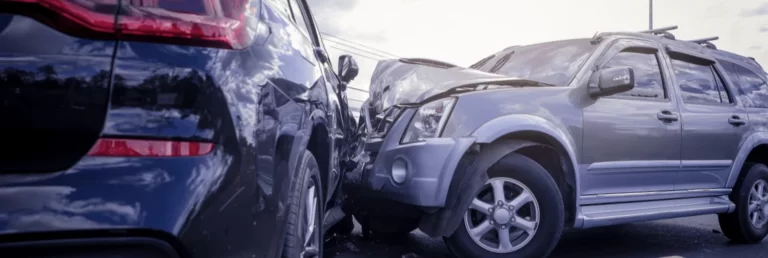Artificial intelligence is on the rise, and cars are not immune. Autonomous driving systems utilize sensors and software to control and navigate a vehicle without, or with minimal, human intervention or oversight. These systems can control the steering and speed of the car.
While fully autonomous vehicles are not yet filling America’s roadways, various types of automated driving features are becoming increasingly popular. Yet, legal precedents, state legislation, and federal regulations regarding self-driving cars remain minimal.
In personal injury cases, negligence is key. The answer to that question becomes far more challenging when driver control of the vehicle is uncertain and unclear. So, who is responsible for self-driving car accidents?
- Human Driver: Accidents of self-driving cars can be caused by driver error. If a human error caused the crash, the driver can be held responsible.
- Software Company: Software developers can be liable if software bugs in driver assistance systems caused a self-driving car wreck.
- The Manufacturer: If vehicle defects are the cause of the crash, the manufacturer may be responsible for a self-driving car crash.
- A Third Party: Not all car accidents are caused by the self-driving vehicle. If another driver caused the crash, they could be responsible.
Self-driving systems can create additional questions of fault when a crash occurs and can add challenges for accident victims when seeking compensation. For those who have been involved in an autonomous vehicle crash, speaking with a Queens car accident lawyer can provide crucial guidance on these questions.
How Do You Determine Liability in an Autonomous Vehicle Crash?
Accident investigation is critical for personal injury claims involving self-driving vehicles. Determining liability becomes complex when dealing with autonomous and semi-autonomous vehicles. The question is not always one of driver responsibility, but also one of vehicle technology. Hardware failures may imply manufacturer liability.
Accident reconstruction can provide insights into the causes of car accidents and help to determine liability. Review of the scene, forensic analysis, photos, videos, eyewitness testimony, and police reports can provide crucial insights into what occurred. Moreover, a thorough inspection of the vehicle, vehicle maintenance records, manufacturer software, and other data may be necessary to determine if there is any product liability.
What to Do if You’re Involved in a Self-Driving Car Accident
If you’ve been involved in a self-driving vehicle collision, it is important to remain calm and ensure your safety. After that, you should:
- Contact emergency services.
- Seek immediate medical attention.
- Taking photos and videos of the scene and vehicle damage, if you can. You should be certain to call the police even after a minor car accident to document what occurred.
- Retain all documents, receipts, bills, etc. related to the accident.
- Contact a personal injury lawyer as soon as possible.
Taking these steps can help to secure your right to compensation and identify liable parties. Your attorney can investigate the cause of the crash and help you file a car accident claim.
Can I Sue the Manufacturer if My Self-Driving Car Crashes?
Yes, you may be able to sue if your autonomous car crashes. If the component manufacturers, software developer, or vehicle manufacturer is liable in a car accident you may be able to seek injury compensation. These accident lawsuits can be based on negligence or strict liability.
If,for instance, the manufacturer ignored safety standards and this caused the crash, you could seek compensation on a theory of negligence. If, however, a defect caused the crash, the manufacturer can be held strictly liable for the injuries.
For those injured due to a faulty product or manufacturer’s negligence, seeking legal advice is crucial. If your car accident case goes to court, having an experienced trial lawyer becomes essential.
How Will Self-Driving Cars Impact Insurance?
In the modern era, drivers need to worry more than just being in an accident involving a vehicle without insurance. They now must deal with the potential implications of autonomous vehicles. Self-driving cars present the possibility of shifting liability off human drivers onto a third party. This means that car insurance may need to change to meet these unique situations.
Product liability insurance, in particular, may be essential for autonomous driving systems. This would be necessary in the event that product defects rather than a human error caused the crash. Since insurance requirements are state-mandated, regulatory oversight of these technological advances may be inconsistent across the country and slow to advance.
Get Legal Guidance from Gregory Spektor & Associates After Car Accident
Vehicles with an autonomous driving system are twice as likely to be involved in accidents as traditional cars, according to stunning statistics from the NHTSA. While fully autonomous vehicles are not yet readily available, an increasing number of vehicles with automated systems are on the road.
At Gregory Spektor & Associates, P.C., we understand the unique concerns and challenges those injured in self-driving car crashes are facing. When technology fails, it can create uncertainty and unnecessary stress. Investigation and initiative are vital to ensuring victims get the compensation they deserve. If you’ve been injured, contact us today at 1 (800) 318-8888 for a free consultation.



